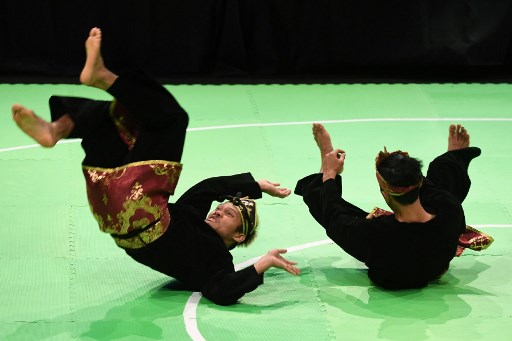Pencak Silat, Indonesia’s mesmerizing, highly effective and sometimes deadly martial art has received the honor of being added to UNESCO’s Intangible Cultural Heritage list.
https://twitter.com/unesco/status/1205141918566494209?s=21
The announcement came during a recent UNESCO committee session in the Colombian capital of Bogota, which started on Monday.
Pencak Silat is the unifying term for traditional Indonesian fighting styles — the word “pencak” is mainly used in Central and East Java while “silat” is used in Sumatra and Borneo. Pencak Silat, which mainly incorporates open-handed strikes, defensive work, grappling and even the use of weapons into a highly efficient fighting style, has existed for generations with many regions in Indonesia establishing their own spins on the martial art.
In an official statement, the UN’s education, science, and cultural body wrote that the traditions of Pencak Silat encompass “mental-spiritual, self defence, and artistic aspects” while the moves and styles are strongly influenced by various elements of art.
Pencak Silat has enjoyed a surge in popularity in recent years thanks to the global popularity of Indonesian action film The Raid and its sequel, which starred Pencak Silat masters and now Hollywood stars Iko Uwais and Yayan Ruhian.
With the addition of Pencak Silat, Indonesia now has nine UNESCO-recognized intangible cultural heritage elements in total, namely Pinisi (art of boatbuilding in South Sulawesi), three genres of traditional dance in Bali, noken (Papuan handcraft of multifunctional knotted or woven bag), Aceh’s Saman dance, angklung, batik, keris (traditional dagger), and wayang puppet theatre.
Read more news from Coconuts Jakarta





